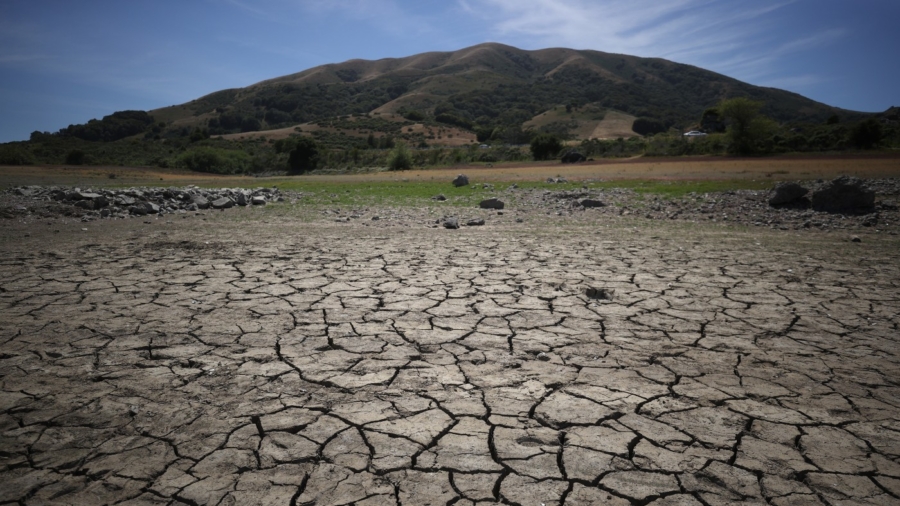Northern California residents, from those living by the Bay to those living on lake houseboats, are coming under threat as a severe drought continues to intensify.
Nearly two million people in the San Francisco Bay Area have been placed under a water shortage emergency Wednesday as the state grapples with worsening drought conditions.
Mandatory water restrictions have been issued for Santa Clara County as officials said the move is necessary to combat a low water supply.
“We can’t afford to wait to act as our water supplies are being threatened locally and across California,” Tony Estremera, director of the Santa Clara Valley Water District, said in a news release. “To better deal with these threats and the emergency they are causing, today my fellow Board Members and I unanimously declared a water shortage emergency condition in Santa Clara County.”
Under the emergency declaration, nearly two million people are being asked to reduce their water usage by 15 percent when compared to 2019. People are also encouraged to limit watering their lawns and filling their pools.
The water district also urged Santa Clara County to proclaim its own local emergency.
“Increased conservation is also necessary to protect local water supplies and guard against groundwater overdraft, subsidence, and dry domestic wells, especially if the drought extends into next year,” Estremera said.
The entire state of California is currently in drought, with intensity levels ranging from moderate to exceptional throughout the state, according to the U.S. Drought Monitor. The state recently experienced warm temperatures 3–6 degrees above normal, according to the drought monitoring website, which predicted that the warmth would continue through the week.
The water district’s emergency declaration comes after the Federal Energy Regulatory Commission ordered the Anderson Reservoir, Santa Clara County’s largest, to be drained to strengthen the dam, Estremera said. Officials said they are also bringing water from out-of-county banks and purchasing water from partners, but these supplies are not guaranteed.
“About 50 percent of our water supply comes from outside our county, and the depleted Sierra Nevada snowpack caused a significant reduction in the amount of imported water we will receive this year,” Estremera said.

Northern California Lake Water Levels Dwindle
Nearly 130 houseboats were removed from Lake Oroville, the state’s second-largest reservoir as well as a source of recreation, in preparation for historic low water levels this summer, state officials said.
“We’ve been notified by the Department of Water Resources that we’re going to hit a historic low,” California State Parks Public Safety Chief Aaron Wright told CNN.
Lake Oroville provides water for drinking, agriculture, and rivers with up to 3.5 million acre-feet of storage. The lake is experiencing exceptional drought, according to U.S. Drought Monitor, along with dozens of other neighboring Northern California counties.
About 80 houseboats from Bidwell Canyon Marina and 50 houseboats from Lime Saddle Marina were pulled “to help adjust and avoid any issues as the water gets lower,” Wright explained. At full lake levels, Bidwell Canyon Marina has a capacity of 800 houseboats and Lime Saddle Marina has a capacity of 400.
Jared Rael, assistant general manager at Bidwell Canyon Marina, told CNN that many people were upset when they were told their houseboats had to be removed from the water.
“People are upset, but for a good reason,” Rael said. “They bought boats so they could be on a lake, and unfortunately we’re at a spot where it is no longer safe to have their boats in certain spots on the lake because it’s going to get so narrow.”
Rael added that houseboats are pulled off the lake every year, but it’s the first time this many boats were forced to be removed.
“Obviously, the boat pulls is not something we wanted to do, but it’s something we had to do,” he said. “We’re trying to do what we can in a bad situation.”

